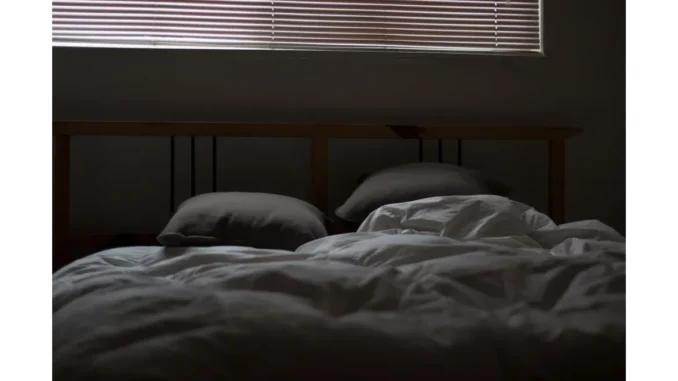
By John Williams
Have you ever been too anxious to fall asleep? Or felt like you couldn’t shut your mind off enough to relax? Many of us have been there. I recently spoke with Sarah Mitchell, a 35-year-old marketing executive, who has struggled with anxiety-induced insomnia for years. Her journey to finding restful sleep offers valuable insights into combatting anxiety at night.
Sarah’s experience is a testament to the power of establishing a nighttime routine, along with other practical strategies, to mitigate anxiety and achieve quality rest.
A Nighttime Routine That Works
“Not only does a routine help you relax enough to fall asleep, but it also helps combat stress and reduces symptoms of anxiety,” Sarah began, reflecting on the pivotal role her evening ritual plays. “Your nighttime routine will help keep you focused on relaxation and sleep.”
Sarah’s routine is simple yet effective. She starts with light yoga to stretch out the day’s stress, followed by a half-hour of journaling. “Journaling helps me process my thoughts and let go of any lingering worries,” she explained. For Sarah, the consistency of her routine is key. “I do it at the same time and in the same order each night. It signals to my brain that it’s time to start winding down.”
Sarah also shared a mini tip within this strategy. “Don’t lay in bed awake. If you’re not falling asleep, get up and do something relaxing—like reading a book or taking a bubble bath. The last thing you want is to associate your bed with being awake.”
Mindful Consumption
Sarah admitted that adjusting her diet and beverage intake was a bit of a challenge but ultimately worthwhile. “I used to drink coffee late into the afternoon and thought nothing of it,” she said. “But cutting out caffeine six hours before bedtime made a huge difference.”
She also reduced her alcohol intake. “Even if you fall asleep after a few drinks, you’re likely to wake up when your body starts to metabolise the alcohol,” she noted. Sarah now avoids drinking alcohol at least four hours before bed, which has significantly improved her sleep quality.
Meditation Apps: A Digital Solution
“Using a meditation app has been a game-changer,” Sarah enthused. Research supports her claim, showing that meditation can reduce stress and anxiety levels, lowering blood pressure and heart rate. Sarah uses a top-rated app that offers guided meditations and deep breathing exercises. “Sometimes, I even listen to calming stories narrated by celebrities like Harry Styles. It’s surprisingly soothing.”
The Comfort of a Weighted Blanket
Sarah discovered the benefits of a weighted blanket through a friend. “Weighted blankets use deep-pressure stimulation, which can help calm anxiety and promote sleep,” she explained. A 2020 study backs this up, showing that people who use weighted blankets have lower rates of insomnia and anxiety. “It’s not the only thing I do, but it’s an easy way to add comfort to my nightly routine.”
Sarah shared a pro tip: “If you live with anxiety, a weighted blanket is a must. I use the Luna Weighted Blanket because it’s soft and breathable.”
Acknowledge Your Anxiety
“All the tips in the world won’t help if you don’t acknowledge you’re feeling anxious,” Sarah wisely pointed out. “Whether you’re stressed, scared or worried, accepting it is the first step to addressing it.”
Sarah incorporates stress-relieving activities into her daily routine to prevent anxiety from building up at night. “A daily walk or some other form of exercise can make a big difference,” she advised. “There’s no set time frame for when you’ll start falling asleep faster—it likely won’t be instantaneous. But if your anxiety is continually affecting your sleep, it may be time to talk to someone.”
Sarah Mitchell’s experience underscores the importance of a consistent nighttime routine and mindful practices in reducing anxiety and achieving restful sleep. By integrating these strategies into your daily life, you too can break the cycle of anxiety and poor sleep.
John Williams


Be the first to comment